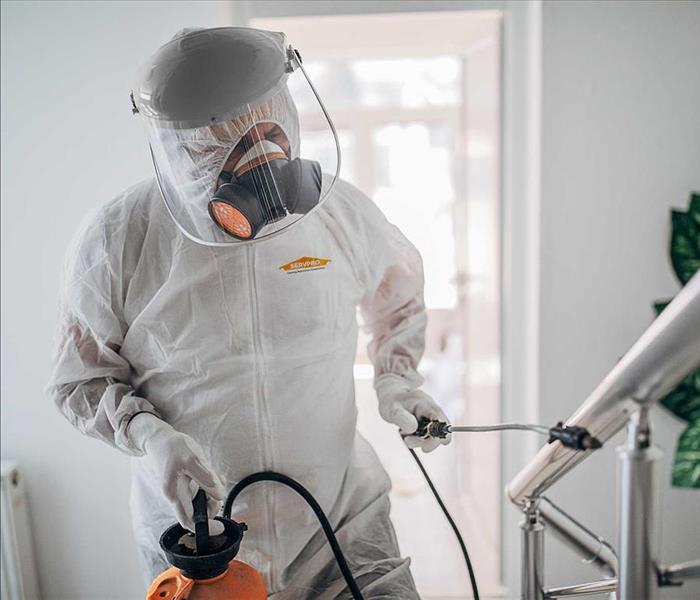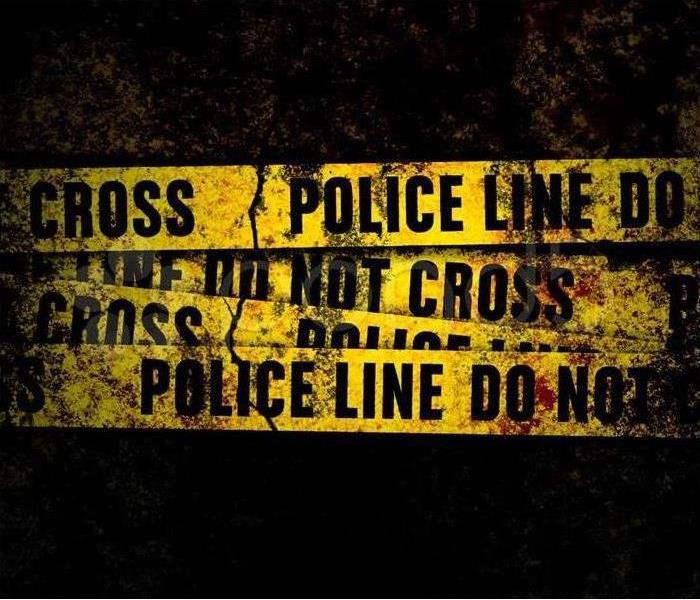Biohazard Cleanups in Jefferson City
1/31/2023 (Permalink)
When people hear the term “biohazard”, they may ask themselves what this means. SERVPRO of Jefferson City can save you from doing extra work researching this term. Let's help you learn about the basics of biohazards, give you some examples, and explain the importance of a proper clean up.
The Importance of Biohazard Cleanup
First of all, it’s important to recognize that biohazards need to be eliminated as soon as possible. If not eliminated, human feces and other biological waste can present an unsafe environment for people. Biohazards are transmissible in a number of ways, including the obvious form: touch. When you touch a dirty surface, like a sink that has not been cleaned thoroughly or often enough, you can contact biohazards. Certain biohazards can be ingested (eaten or drank in liquid form), inhaled, or shared in blood-to-blood contact (if biohazards enter an exposed wound, for example). The latter is possibly the most dangerous.
What Is a Biohazard?
Essentially, a biohazard is a disease or pathogen spread from a living organism (i.e. animals and humans) that is dangerous when ingested. To present a scenario, imagine a bathroom in an office space. This room in an office is in use every day of the week. People expose themselves to the toilets and sinks when utilizing bathrooms. Let’s say the bathroom is never cleaned thoroughly, and an employee uses an unsanitary bathroom. In this case, an employee is at a major risk of developing a disease from a biohazard.
However, biohazards are nearly always dangerous. Here are some common examples of biohazards, including materials you may not realize fall into this category.
Bloodborne Pathogens
While blood is essential to maintain the life of a person or animal, it produces the opposite effect when it escapes the body. To present another scenario, a crime could occur inside a home, leaving unsafe bloodborne pathogens and other bodily fluids in the building. After a crime scene investigation is finished, let’s say that the building is never cleaned afterward. If this were to happen, people would not be able to use the building and it would be called biohazardous. The reason is that blood contains what is known as bloodborne pathogens.
Examples of these pathogens include HIV, HBV, and many other types of harmful diseases. In this same scenario, if a homeowner tries to remove blood and other bodily fluids themselves, they are at a high risk to develop this disease. They can ingest these pathogens from these pathogens entering their body. How could this happen? Let’s say a homeowner has a cut or broken skin still healing; their chances of exposure are very high if bloodborne pathogens are exposed to their skin.
Animal Feces
Finally, human fluids and blood are not the only type of biological hazard that could pose a risk of someone developing a disease in their body. If a person owns a pet in their home, the dog or cat may remain inside for many hours of the day. What can happen, especially when domesticated pets, is that they leave feces or other animal fluids on the floor at any time of the day. It is important to monitor your pets throughout the day to spot an occurrence like this.
This is because animal feces, as mentioned before, presents a biohazard to a home if left unattended. Over time, if not cleaned, the odor and feces begin to accumulate in the home. If left unattended, the home can be uninhabitable for a homeowner or anyone else interacting with the house. That is why a biohazard cleanup is essential to combat the chances of this occurring.
When your home or office space is exposed to biohazards, you can rely on our professional bio-cleaning services at SERVPRO of Jefferson City. To learn more about what we do, you can send us an inquiry or call us at (573) 635-5883 We make fire and water cleanup and restoration, "Like it never even happened."






 24/7 Emergency Service
24/7 Emergency Service

